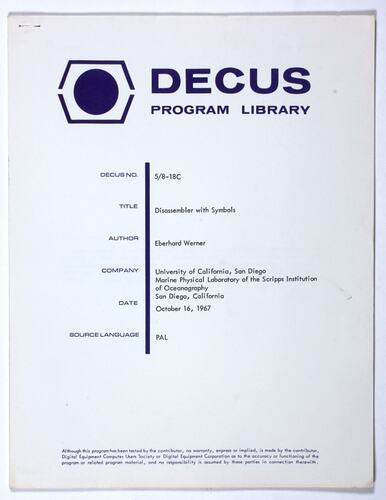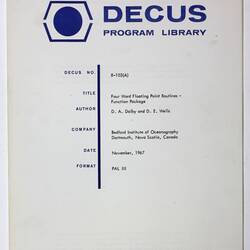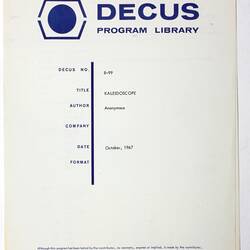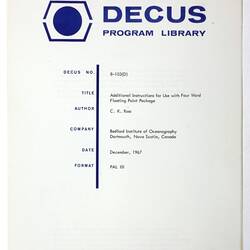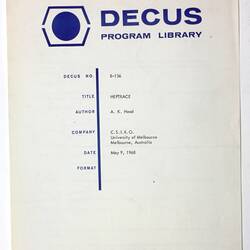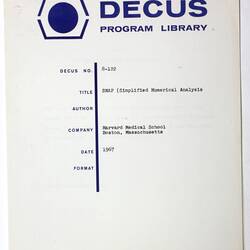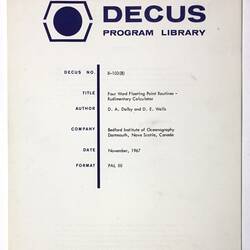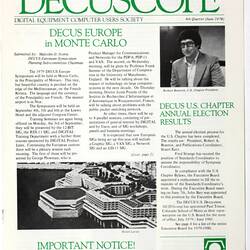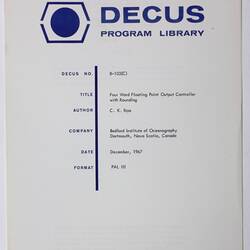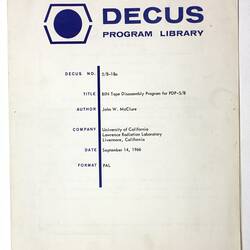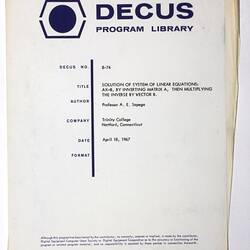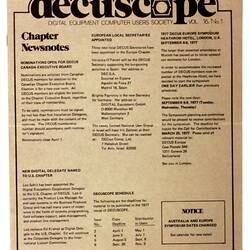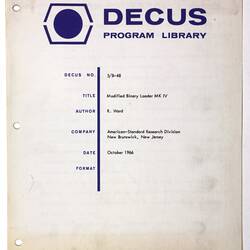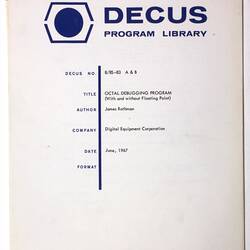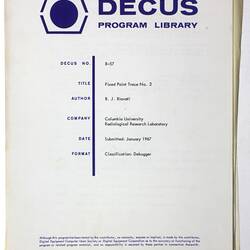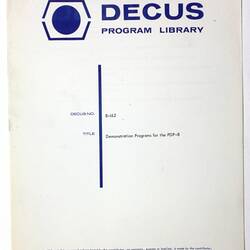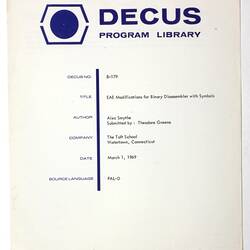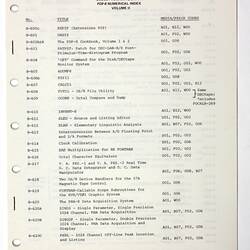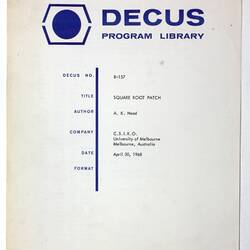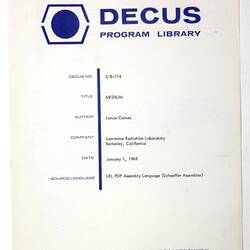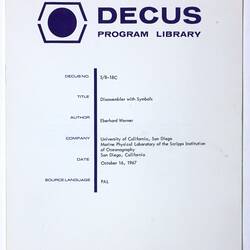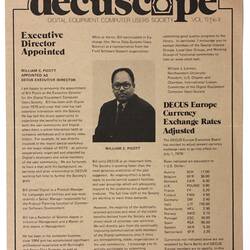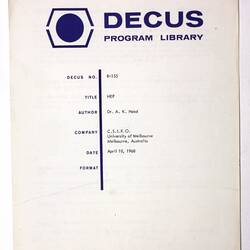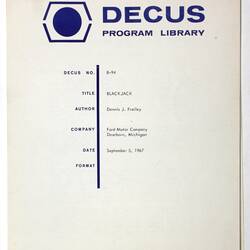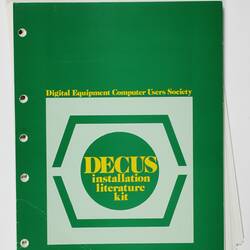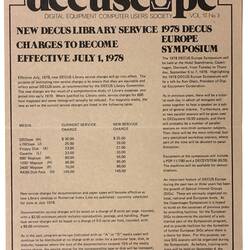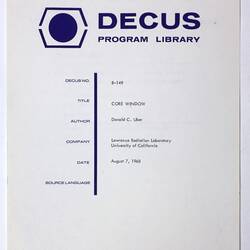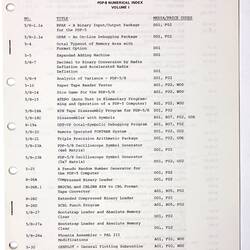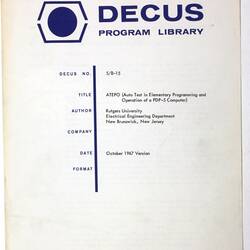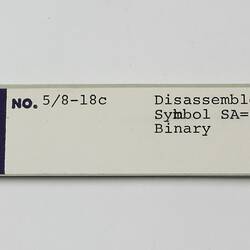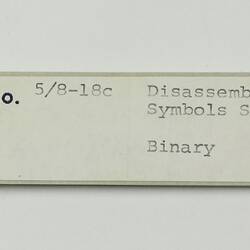The following information has been copied from a webpage entitled DECUS, which was accessed on 7 Jan. 2014. The webpage was produced by the Computer History Museum, Mountain View, California.
http://pdp-1.computerhistory.org/pdp-1/?f=theme&s=4&ss=7
Soon after Digital's first computer, the PDP-1, was introduced, a group of PDP-1 users met in Lexington, Massachusetts, with the idea of starting a program library. From 1961 to 1988, DECUS (the Digital Equipment Computer Users Society) grew to be one of the largest international societies of computer users in the world. Among the benefits of membership was the open exchange of information between user and manufacturer.
The impetus for DECUS was the need to share information and computer programs for the PDP-1. Because it had been typically used in dedicated applications, and because DEC initially sold only hardware, early users had to write their own software. However, the fact that many such programs relied on common subroutines and procedures that could be readily exchanged made DECUS a rapid success.
Members included companies and organizations that purchased DEC equipment; most members were application programmers who wrote code for DEC machines or system programmers who managed DEC systems. DECUS and DEC were closely related but separate. DEC staff members were not eligible to join DECUS, but were encouraged to participate in DECUS activities. DEC in turn relied on DECUS as an important channel of communication with its customers.
The American chapter of DECUS conducted technical conferences at various locations and ran operations like special interest groups. DECUS also promoted the exchange of user-developed software, largely via magnetic tape. DECUSCOPE was the publication of DECUS.
In 1998, Compaq acquired DEC, and DECUS became a Compaq user group.
======================
DECUS Library Compendium. Accessed 7 Jan. 2014.
This website is described as a clearinghouse of information previously collected and distributed by DECUS and subsequent organizations.
More Information
-
Keywords
-
Authors
-
Article types
